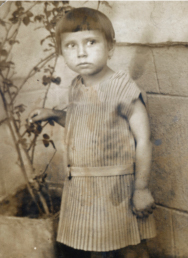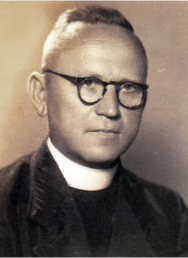Rosa Kaiserman
Botosani, Romania
Interviewed in Botosani in 2007 by Major Emoke
“Calling names like that—it was awful.”
It was the late 1930s and I smelled that something was against us. I was too young to realize it, but I remember one thing: I usually got from my parents one or two lei [local currency] to buy myself a pretzel on my way to school. At the street corner there was always man with a basket covered with white cloth – he would sell pretzels to the children. One day the schoolmistress came into our class and I remember what she said: ‘Children, don’t buy any pretzels from that kike at the corner. I organized here for you a buffet, please buy only from the buffet.’
I didn’t know at that time what ‘kike’ meant, but I felt insulted. I asked myself: why? I was educated to be friends with everybody and to respect other religions, even if I had another religion. And still, what the schoolmistress Teodorescu said that day in school I remember even today.
Afterwards I still bought pretzels from the same man at the street corner. I mean, she could have said it differently, something along the lines of: ’Those pretzels from that man are dirty, please buy from us, because they are…’ But she used the word ‘kike,’ and that’s what I remember. This was in the third or fourth grade of elementary school. Calling names like that—it was awful.
Rosa Kaiserman remained in Iasi, a large Romanian city that had a prewar population of 55,000 Jews out of a total population of 90,000. She was in hiding during the infamous Iasi pogrom of June 1941, when approximately 12,000 Jews of the city were murdered by Romanian and German soldiers.
BULLYING STORIES

“It’s something that never leaves you. It’s something you never forget, no matter how long you live.”
STANDING UP STORIES

“The priest gave me a Christian name for my false papers. I’ve kept it ever since because he didn’t just give me a name, he gave me a life.”